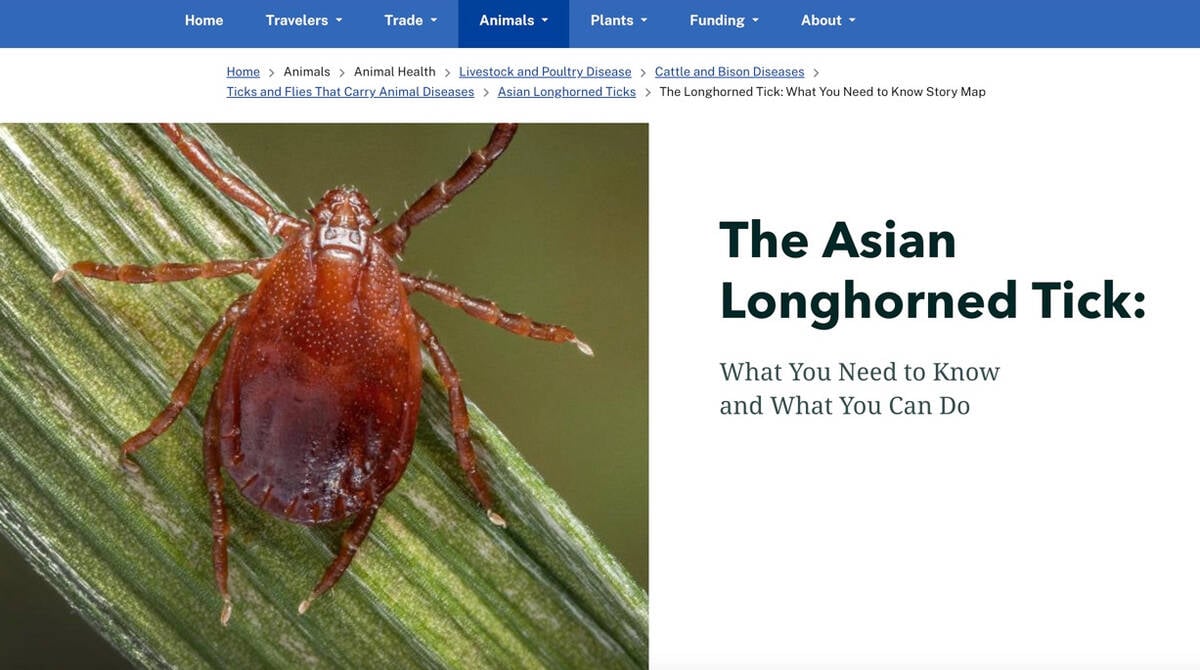There were some pointed questions, but most farmers at an information meeting about the Agricore and United Grain Growers merger seemed resigned to the union of the two companies.
“It’s pretty inevitable, but I can’t say that I’m happy this is the way it’s turning out,” said Rick Pederson of Bawlf, Alta.
“If we have to accept this deal, it shows what bad shape we’re in,” said Pederson, as he listened during a Camrose meeting to Agricore and UGG staff paint a bleak picture of the future of the two grain companies without the merger.
Read Also

New World screwworm not seen as trade threat
Canadian cattle producers shouldn’t be worried about the New World screwworm, which has become a massive concern for ranchers in Mexico and is threatening the southern United States
Jim Wilson, Agricore vice-president, said Agricore has been in a worsening financial state due to increased competition and lower prairie grain movement.
“There was not enough earnings to sustain the organization,” he said.
In April, Agricore didn’t meet a lenders covenant, an income statement test put in place by its lenders.
The company was required to maintain a ratio of net earnings to interest expense of at least 2:1. In April the ratio was 1.59:1. It looked like it would default on the July lenders covenant also, but has obtained a waiver from the noteholders and banks, said Wilson.
“Clearly our assets are greater than our liabilities,” he said, assuring farmers the banks are not about to call its loans.
“At the end of the day we need to look at this as a tremendous business opportunity for Agricore members and shareholders. Certainly Agricore co-operative as it stands will not stay the same,” said Wilson.
Robert Dyck of Tofield, Alta., wondered how farmers would benefit from reduced competition: “Sooner or later we’re going to pay for it.”
But Wilson said farmers would see little benefit from two weakened companies fighting for business.
“What we’re seeing, if these two companies continued on their own in a continued weakened financial position, how competitive do you think Agricore could be?” he asked Dyck.
Wilson answered himself: “Together we can be a strong competitor. Weak competitors don’t supply good competition.”
Despite those assurances, New Norway, Alta., farmer George Calvin said he had “serious reservations” about Agricore United.
“It’s been described as a merger. It looks more like a takeover by UGG,” said Calvin, adding he saw little resemblance in the proposed Agricore United to the grain co-ops of old.
Calvin said he is worried the appointment of former UGG chief executive officer Brian Hayward as chief executive of Agricore United will mean the new company will adopt UGG’s vocal anti Canadian Wheat Board stand.
“Ted Allen is going to continue with the anti-wheat board rhetoric he has for years,” said Calvin, referring to UGG’s president.
Calvin said most farmers will likely vote for the merger because they are worried about losing remaining equity in the company.
The involvement of the American giant Archer Daniels Midland in the new company was also a concern voiced by farmers. The merger will take ADM’s share from 45 percent of UGG to 19 percent of Agricore United, although ADM could raise its share of the merged company back to 45 percent.
“We’re letting ADM into this at 35 cents on the dollar. Are we in that bad of shape?” asked Pederson.
“I just don’t like the idea all the
equity built up by previous generations will be handed over to ADM. We’re handing over free of charge the equity the old members brought into this company.”
UGG president Allen defended the deal. He said each company had independent valuations and were given a range of values, but these ranges didn’t overlap
“What ended up was UGG having to cross that gap and Agricore’s minimum numbers were achieved,” he said of Agricore’s members getting 55 percent of the company and UGG’s shareholders 45 percent.
Allen said there are no guarantees with any investment.
“The best way in protecting your investment is to have a competent management team and strong direction, going forward with a good board, good directors and good management team and a good management plan that is executed.”
UGG director Ken Motiuk said its hard to predict how votes will go on the merger proposal but he hopes farmers will see the benefits.
“We really do not want to make it look like we’re railroading something onto farmers. We have the ability to preserve one farmer-controlled entity here.”














